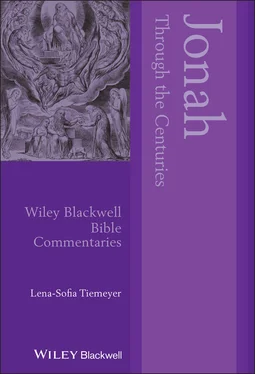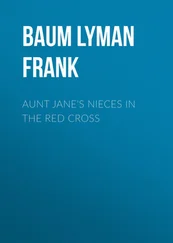Lena-Sofia Tiemeyer - Jonah Through the Centuries
Здесь есть возможность читать онлайн «Lena-Sofia Tiemeyer - Jonah Through the Centuries» — ознакомительный отрывок электронной книги совершенно бесплатно, а после прочтения отрывка купить полную версию. В некоторых случаях можно слушать аудио, скачать через торрент в формате fb2 и присутствует краткое содержание. Жанр: unrecognised, на английском языке. Описание произведения, (предисловие) а так же отзывы посетителей доступны на портале библиотеки ЛибКат.
- Название:Jonah Through the Centuries
- Автор:
- Жанр:
- Год:неизвестен
- ISBN:нет данных
- Рейтинг книги:4 / 5. Голосов: 1
-
Избранное:Добавить в избранное
- Отзывы:
-
Ваша оценка:
- 80
- 1
- 2
- 3
- 4
- 5
Jonah Through the Centuries: краткое содержание, описание и аннотация
Предлагаем к чтению аннотацию, описание, краткое содержание или предисловие (зависит от того, что написал сам автор книги «Jonah Through the Centuries»). Если вы не нашли необходимую информацию о книге — напишите в комментариях, мы постараемся отыскать её.
Jonah through the Centuries
should
Jonah through the Centuries
Jonah Through the Centuries — читать онлайн ознакомительный отрывок
Ниже представлен текст книги, разбитый по страницам. Система сохранения места последней прочитанной страницы, позволяет с удобством читать онлайн бесплатно книгу «Jonah Through the Centuries», без необходимости каждый раз заново искать на чём Вы остановились. Поставьте закладку, и сможете в любой момент перейти на страницу, на которой закончили чтение.
Интервал:
Закладка:
The notion of interpretative clusters also influences the structure of my commentary. I have arranged the interpretations thematically rather than strictly chronologically. In practical terms, I shall begin with the earliest interpretation and follow that line of thought through to modern times before turning to the next-oldest interpretation, and so forth.
My commentary progresses slowly through the Book of Jonah, verse by verse and sometimes even word by word. Some verses have given rise to a plethora of interpretations, whereas others have seldom been cited. The commentary reflects this unevenness, with the result that the discussions of key verses, such as Jonah 1:1, 3, and 2:1, will stretch over many pages. Other verses are treated much more succinctly due to the relative lack of interest shown by exegetes.
The reception of the Book of Jonah interacts not only with the Masoretic text (MT), i.e. the received Hebrew text, but also with a wide range of translations, predominantly the Septuagint (LXX), the Aramaic Targum (TJ), and the Syriac Peshitta (S), among others. Yet, most interpretations, predominantly but not exclusively Jewish ones, have their origin in aspects associated with the Hebrew text. I have therefore opted to open the discussion of each verse with my own very literal translation of the MT into English. I have made limited effort to arrive at an idiomatically pleasing translation; rather, the translation serves to give readers insight into the exact rendering of the Hebrew text. When citing from other passages in the Bible, the translations are from the NIV (unless otherwise stated).
Throughout the commentary, I have avoided, by and large, using Hebrew characters and instead have opted for a simplified form of transliterations. At times, however, I have chosen to include the germane Hebrew words and expressions so that readers familiar with the language can grasp the logic behind a given interpretation. Likewise, when an interpretation stems from the Greek translation of Jonah, I have similarly included the Greek text to enable readers to comprehend the rationale behind the retelling. The same is true for interpretations depending on the Latin text of the Vulgate, etc. In all cases, I provide the original language, accompanied by an English translation.
In addition, I have endeavoured to find English translations of the original sources. This means that the Jewish Sages, the Church Fathers, the Reformers, and so forth, are not cited in the original Hebrew, Aramaic, Greek, Latin, or German but in the extant English translations. For more details concerning the translations, please see the bibliography. When no translations exist, I have translated the source myself (or asked kind friends for help).
Reception history is truly synchronic insofar as few interpreters prior to the twentieth century interpreted the Book of Jonah on its own. Jonah was considered a book within a larger canon, and interpreters allowed the rest of that canon to inform the events and concepts within the book. As a result, we should not be surprised to find interpreters drawing from a wide range of biblical passages to support or refute a given interpretation of a passage in Jonah.
On a related note, I am fully aware that many of the perceived contradictions in the final form(s) of the Book of Jonah can be and have been explained by modern scholarship from source-critical and redaction-critical perspectives. A case in point is the tension between the narrative in Jonah 1, 3–4 and the psalm in Jonah 2. I have wilfully excluded such diachronic interpretations. This approach should be construed as neither endorsement nor rejection of diachronic explanations but as an attempt to preserve the focus of the present commentary on the received text in its final form(s).
Finally, some technical details.
I refer to God as a masculine singular entity called either God or YHWH. This is a linguistic rather than ontological decision that seeks to reflect how God has been perceived for most of the last 2500 years.
Many people have written commentaries to the Book of Jonah. In each case, unless otherwise specified, the references to their writings go to the germane verse in their commentary. In the case of the Glossa Ordinaria and the Geneva Bible Notes, unless stated otherwise, the reference belongs to the verse under discussion. With reference to the Church Fathers, this is true also for Jerome (transl. MacGregor), Cyril of Alexandria (transl. Hill), and Theodore of Mopsuestia (transl. Hill); with reference to the reformers, the same principle applies to Calvin (transl. Owen) and Luther (transl. Oswald). In the case of Luther, I shall further indicate whether his comment appears in his Latin or his (longer) German commentary. The interpretations of the mediaeval Jewish commentators (Rashi, Ibn Ezra, Radak, Abarbanel) are all taken from the Rabbinic Bible, as found in the Bar Ilan Judaic Digital Library (the Responsa Project). As above, their views are expressed in their commentary to the particular verse under discussion (transl. Bob) unless otherwise specified.
English translations of the following primary sources are taken from the following texts unless otherwise indicated: the Jewish-Hellenistic sermon On Jonah, see Muradyan and Topchyan; Rabbinical sources (Mishnah, the talmudim, Mekhilta, Genesis Rabbah, etc.), see Neusner; Targum Jonathan, see Cathcart and Gordon; Pirqei de-Rabbi Eliezer, see Friedlander; Glossa Ordinaria, see Litteral; ‘Patience’, see Koertge; the Qur’an, see Pickthall; the Zohar, see Wineman.
It has been a rare scholarly privilege to spend the last five years in the company of the Book of Jonah. I wish to thank the series editors John F.A. Sawyer and David Gunn for their invitation to write this commentary and for their continuous and ever-gracious and constructive support along the way. I am also very grateful to the series editor Andrew Mein, who read through the penultimate version of this book and gave constructive and encouraging feedback. I am further indebted to the students in my seminar ‘Jonah and His Fish’ that I gave in the autumn of 2019 at the University of Aberdeen. Their questions and insights constantly prompted me to think deeper about the issues raised in this commentary. I especially wish to thank Dr Hei Yin Yip, Amy Bender, Dorothy Plummer, and Caitlin Yool for pointing out a plethora of typos and less felicitous English constructions, thus helping me to write a better book. I am also, as always, grateful to my husband Andreas Tiemeyer for his constant willingness to discuss yet another theological issue, yet another interpreter, and yet another textual problem. It is not an exaggeration to say that Jonah and his fish have become members of our family!
Lena-Sofia Tiemeyer
Örebro, Sweden, November 2020
Introduction
The reception history of the Book of Jonah offers a rich web of interpretations. This brief introduction outlines some of the key interpretative trends in Jewish, Christian, Muslim, and secular readings.
Jewish Interpretations
Jewish interaction with the Book of Jonah is varied, having begun in the intertestamental period and continuing to modern times.
Early Jewish Interpretations
There is some evidence of interpretation as early as the Septuagint (LXX). The Greek translation offers four readings that attest either to a Hebrew text that differs from the Masoretic text (MT) or, more likely, interpretations of the MT. First, LXX Jonah 1:6 finds Jonah ‘snoring’, whereas Jonah in the MT ‘sleeps deeply’. Many later interpreters adopt this reading and explore its theological consequences. Second, whereas the MT Jonah 1:9 has Jonah present himself as a ‘Hebrew’, the LXX defines Jonah as ‘as servant of the Lord’. Third, the LXX understands the MT’s fish as some kind of sea monster. This interpretation may be inspired by Greek mythology, where the same term denotes the sea monsters which were slain by the heroes Perseus and Heracles. Fourth, whereas Jonah in the MT gives the people of Nineveh forty days to repent, the LXX gives them a mere three days. Several later Christian interpreters preferred the latter reading as it lent additional support to their typological interpretation of Jonah as a type for Christ (see further below).
Читать дальшеИнтервал:
Закладка:
Похожие книги на «Jonah Through the Centuries»
Представляем Вашему вниманию похожие книги на «Jonah Through the Centuries» списком для выбора. Мы отобрали схожую по названию и смыслу литературу в надежде предоставить читателям больше вариантов отыскать новые, интересные, ещё непрочитанные произведения.
Обсуждение, отзывы о книге «Jonah Through the Centuries» и просто собственные мнения читателей. Оставьте ваши комментарии, напишите, что Вы думаете о произведении, его смысле или главных героях. Укажите что конкретно понравилось, а что нет, и почему Вы так считаете.












